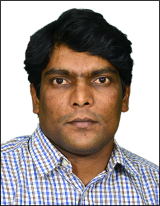Out of the many ideologies that have meandered through the realm of political discourse, Populism has been one of the few that has stood the test of time. It has done so through popular support, through policy, and sometimes through deceit and Propaganda. Populism is a political tool that champions, or claims to champion the cause of the ‘common’ people and aid them in their fight against an actual or perceived elite or establishment. Populism typically combines the Left and Right, opposing huge commercial enterprise and economic elitism and often opposed to ‘elitist’ political traditions.
Populism can be practiced in both democratic and authoritarian political systems. Populism usually is critical of political representation and all other systems that are in place to keep a distance between the people and those who rule. In established democracies, populism thrives to empower citizens by securing their rights through people-friendly policy and reforms without endorsing a revolutionary fervour.
The United States saw the rise of the Populist Movement in 1892 which gave birth to the Populist Party, the People’s party. The party sought critical reforms and was also successful in influencing amendments to the US Constitution. The populists of the era were also the seekers of direct democracy that they desired to achieve through initiatives for the common citizens and also pushing referenda. In contemporary times, populism is generally identified as a part of authoritarianism. The modern and contemporary periods of history have seen populism in many regions and states across the world as a phenomenon that revolves around a charismatic leader. Populism has been monistic in its contemporary avatar and rarely favours decentralization of power or socio-political narrative. The centralization of power and socio-political narrative has often led to the alienation of people from democratic values and past ideology.
Authoritarian populism is usually accompanied by extreme nationalism, racism, conspiracies and increased targeting of marginalized groups, often through propaganda. This is usually done to secure the power of the leader or to hide failures that may threaten the leader’s rule. Populism may also lead to a rise in misinformation and data manipulation intended to keep the people ignorant about real issues or prevent protests and popular resistance to authority. Post the second world war, populism has been identified with the political style and functioning of Latin American leaders, namely Juan Perón, Getúlio Vargas, and Hugo Chávez. In the early twenty-first century, populist authoritarian regimes arose in Turkey, Poland, and Hungary, amongst different countries. Depending on one's view of populism, populist policies can be perceived as programs that that lead to popular welfare or deliberate shams that are intended to be mere instruments of symbolism that actually don’t lead to welfare. However, there could also be a middle ground in between these extreme views.
International Relations today is a vast area with several issues at its core. Recent occurrences like ‘Brexit’, the election of Donald Trump in the United States, the Le Pen campaign in France, and the ascent of Conservative leaders in certain parts of the world has garnered the attention of the general public and the media across the world. The resurgence of populist ideas and movements in the United States, India, Russia and European states like the United Kingdom, France, and Germany has challenged the dominance of liberal principles in International Relations. There is a crucial need to understand populism in its contemporary avatar and deconstruct its various manifestations across the world. Keeping this in mind, CHRIST (Deemed to be University), Bangalore, India, and The University of Toledo, Ohio, USA, are jointly organizing an International virtual conference on New Populism and Responses of the 21st century. The conference will create a path to understand the changing facets of populism, and experts from various disciplines will address the relevance of populism in their particular domains.






